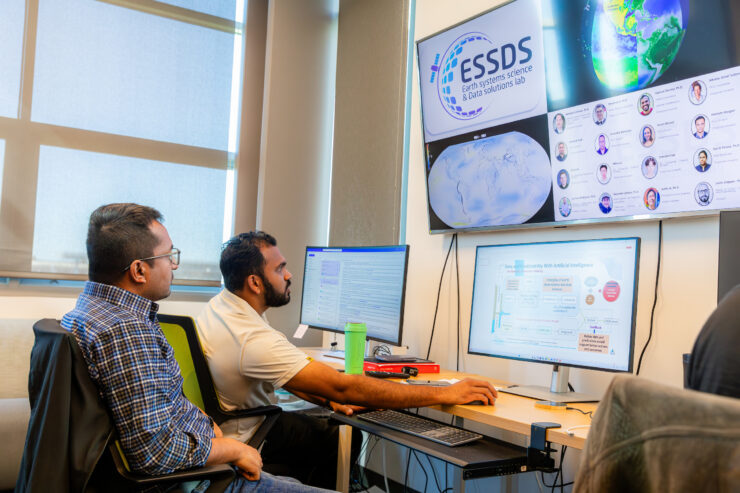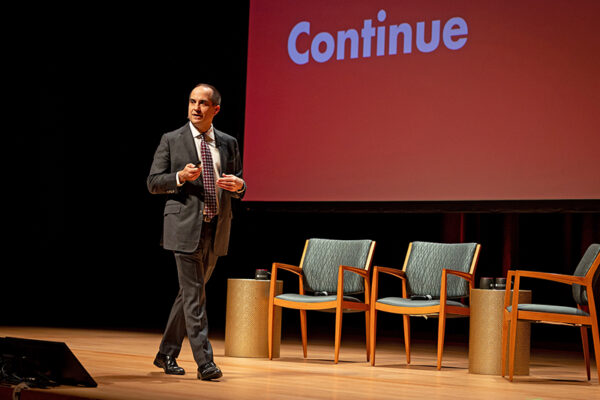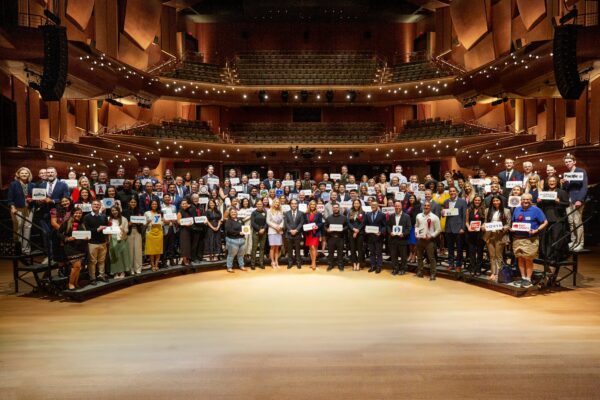Exploring how artificial intelligence is reshaping the tech industry and what students can do today to future-proof their careers in computer science.
Index
Introduction: The Rise of AI in Tech
Artificial intelligence (AI) has evolved beyond a buzzword in technology. It is now a driving force behind innovation across nearly every industry. However, as AI tools become more capable, many computer science and engineering students are asking the same question: “Will AI take over my job?”
According to Chapman University Computer Science Professor Dr. Erik Linstead, and Assistant Professor of Electrical Engineering and Computer Science, Dr. Yuxin Wen, the answer is clear: AI isn’t replacing computer scientists—it’s transforming what they can achieve.
“AI has become the centerpiece of computer science,” Dr. Wen said. “It accelerates innovation and allows us to tackle more complex problems faster.” She explained that in the past, a new research idea could take weeks to implement, but now, with AI tools, students can build prototypes in a day, allowing them to spend more time on creativity and innovation.
Dr. Linstead agreed that this shift is freeing students and researchers to focus on deeper, more meaningful challenges.
“AI isn’t replacing human creativity. It is amplifying it,” Dr. Linstead said. “The role of computer scientists is shifting from coding to designing smarter, more ethical systems.”
The Current Landscape: What AI Means for Computer Science Careers
The fear that AI could replace programmers isn’t unfounded, but both experts agree it’s exaggerated. While AI systems can handle basic coding tasks, they also open doors to new and evolving roles that require advanced reasoning, ethics, and design thinking.
“It’s partially true that AI can take over basic programming,” Dr. Wen said. “But remember: AI is built by humans. We still need people to think critically, define problems, and collaborate across disciplines.”
She pointed out that computer science careers have become increasingly interdisciplinary, intersecting with fields like healthcare, manufacturing, psychology, and business.
“AI’s expansion across industries means there will be more opportunities for skilled programmers, not fewer,” Dr. Wen said.
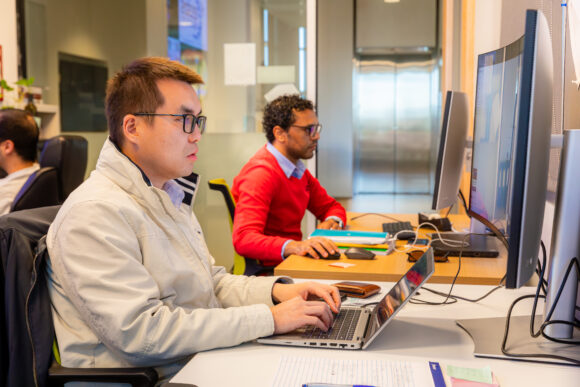
Expert Insights: What the Future Holds for Computer Science Students
AI isn’t replacing computer scientists—it’s changing what their jobs look like.
As automation changes how programmers work, the profession itself is expanding into new areas that combine creativity, ethics, and human judgment.
“AI will take over some of the repetitive tasks,” Dr. Wen said. “But that means computer scientists can focus on more meaningful and complex work. They’ll spend less time fixing code and more time designing smarter systems.”
Dr. Linstead adds that AI’s influence is similar to other major shifts in technology.
“The reality isn’t job loss—it’s job evolution,” Dr. Linstead said. “New tools always change what we do, but they also create entirely new specialties and ways to innovate.”
This evolution is already giving rise to new roles in the tech industry:
AI Ethics Engineers
Specialists who ensure algorithms are transparent, fair, and responsible.
Machine Learning Operations Engineers
Professionals who manage and optimize the deployment of AI systems at scale.
Human–AI Collaboration Designers
Experts who shape how people and intelligent systems interact in workplaces, healthcare, and education.
Dr. Wen believes these emerging positions reflect a larger truth: the best computer scientists will be those who combine technical skills with human understanding.
“AI can’t replace creativity, empathy, or ethical reasoning,” Dr. Wen said. “Those are uniquely human. As educators, our goal is to help students integrate those strengths into their technical work.”
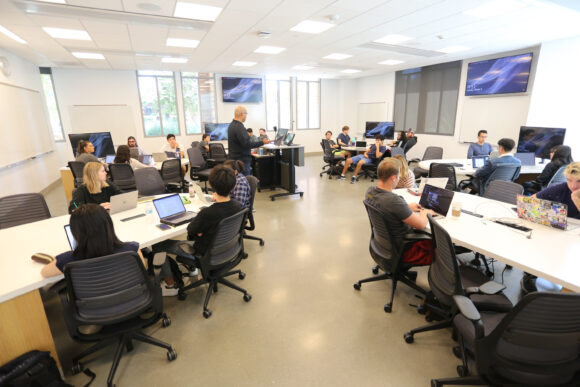
Skills Taught in Computer Science Curriculum Will Remain in Demand
To stand out in this rapidly evolving landscape, students need more than technical know-how. Both professors emphasized that a solid theoretical foundation in math, algorithms, and logic remains the bedrock of computer science.
“Students still need to master the fundamentals before they specialize,” Dr. Wen said. “That’s what makes you adaptable.”
Hands-on experience is equally important. Research projects, internships, and collaborative work help students apply classroom learning to real-world challenges. Dr. Wen notes that early exposure to research or creative problem-solving gives students a clear advantage.
Dr. Linstead adds that in an AI-driven world, communication and collaboration are just as essential as coding.
“AI will continue to evolve,” Dr. Linstead said. “The ability to reason, communicate, and work across disciplines will always set you apart.”
Preparing for a Career in AI-Enhanced Tech
The future of computer science jobs will belong to those who continue to learn and grow. In an AI-driven world, curiosity and adaptability are just as valuable as technical skills.
“Students who learn how to learn will always stay relevant,” Dr. Linstead said.
Dr. Wen adds, “Don’t just study AI. Experiment with it. Build something creative, even if it doesn’t work perfectly.”
Keep Learning
Stay up to date with AI and tech trends through certifications, online courses, and ongoing study in data science, software engineering, or machine learning.
Get Hands-on
Build projects that show applied AI knowledge, such as applications, automation tools, or creative experiments that demonstrate your problem-solving skills.
Build Networks
Join professional communities, mentorship programs, and tech forums to connect with others and shape the future of AI and computer science careers.

Key Takeaways
-
AI Is Transforming, Not Replacing, Computer Scientists
AI is reshaping the tech industry by automating repetitive coding tasks and amplifying human creativity. Rather than eliminating jobs, AI is shifting the focus of computer science toward designing smarter, more ethical, and human-centered systems.
-
Human Skills and Interdisciplinary Thinking Are the Future
As AI expands into every industry, successful computer scientists will combine technical expertise with creativity, ethics, empathy, and communication. New hybrid roles like AI ethics engineers and human–AI collaboration designers will require both technical and human understanding.
-
Continuous Learning and Adaptability Are Essential
To future-proof their careers, students must build a strong foundation in math, algorithms, and logic while continually learning new AI tools and techniques. Hands-on experience, collaboration, and curiosity will keep them relevant in an AI-enhanced world.

Become a Computer Scientist at Chapman University
Chapman University’s computer science programs emphasize innovation, responsibility, and interdisciplinary learning.
Through hands-on projects, research opportunities, and courses that blend ethics with technical expertise, Chapman prepares students to become the kind of computer scientists the future needs: thoughtful innovators who can lead in an AI-driven world.
Discover how Chapman’s computer science degrees can help you turn curiosity into impact.
Explore Chapman’s Computer Science Programs →
